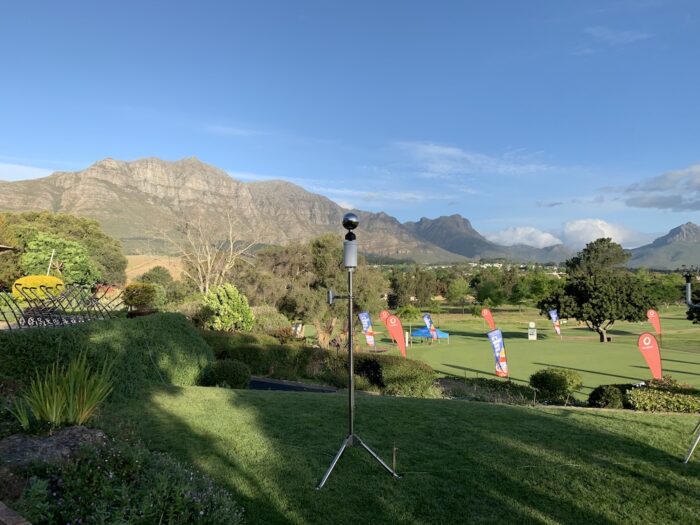Could a lightning detector benefit your golf club?
It would be fair to say that getting struck by lightning is not at the forefront of many people’s minds when taking part in outdoor activities, especially not in the UK. However, as strikes and incidents become more common, it’s important that leisure facilities take precautions, with 2017 seeing the fifth fatality since 1999 on a UK golf course in Ipswich.
The BTD-200 lightning detector is currently installed at the Royal Pahang Golf Club at Kuantan, Pahang, Malaysia, Stellenbosch Golf Club, South Africa and at Bishops Stortford Golf Club, Hertfordshire, to name a few.
With the third highest lightning activity in the world, Malaysia deals with severe weather regularly, something that only increases during the inter-monsoon periods of April, May, September and October. Between 2008 and 2017, reports suggest there were over 100 fatalities in the country due to lightning strikes.
Working alongside its Malaysia partner, Jebsen & Jessen, Biral installed its system on the roof of the site’s clubhouse for optimal coverage of the area. With the level of coverage vital for protecting visitors, The Royal Pahang specified an advanced system capable of covering its 18-hole golf course which spreads across 120 acres.
For its South Africa application, Biral installed its technology at Stellenbosch Golf Club, famous for hosting some of South Africa’s most prestigious golf tournaments, including the 1999 South African Open and five South African Masters tournaments.

In 2019, the club hosted more prestigious events and due to its location, needed an easily installed and reliable thunderstorm detection system which offers advance warnings for common overhead lightning that occurs. The system had to be quick and easily installed so that it could be set up just prior to events, with the warnings able to be monitored by course officials via a computer link so that audible warnings could be issued.
More recently, Bishops Stortford Golf Club is also benefiting from the BTD-200 lightning detector. The club, which is more than 100 years old, wanted optimal coverage of its 18-hole course, and is pleased with the level of protection its staff and visitors now receive.
The BTD-200 is a complete detection and warning system which has been developed from the Biral range of professional aviation grade lightning detection systems. It reliably detects the presence of all forms of lightning out to a range of 35km (22 miles) using a novel quasi-electrostatic detection principle. This highly sensitive method detects small changes in the charge state of the atmosphere in the local area and is even able to measure the charge on falling precipitation.
Designed to be installed and set up by non-technical staff, it comes with a power supply and the essential PC application ‘Lightning Works’, for monitoring and warning personnel of approaching thunderstorms. The optional ‘Lightning Works Messenger’ application then works seamlessly with Lightning Works and automatically sends out email and SMS text messages to any number of site managers and remote staff.
The Lightning Works software alerts the staff and managers to threats in real time, allowing them to review and manage the situation and to alert staff to the potential danger. It can also activate warning sounders automatically if required.
It is easy to forget when residing in countries like the UK that in the course of a few seconds around 200 bolts of lightning have struck the ground across the earth. With summer now under way and outdoor events taking place, it is vital that open sites like golf courses invest in simple measures like lightning detection systems and installing grounding systems in buildings. Using these systems could go a long way in avoiding deaths and injuries, which is especially important as severe weather conditions are already accelerating as global warming takes hold across the world.
Web: www.lightningearlywarning.com















Let me tell You a sad story ! There are no comments yet, but You can be first one to comment this article.
Write a comment